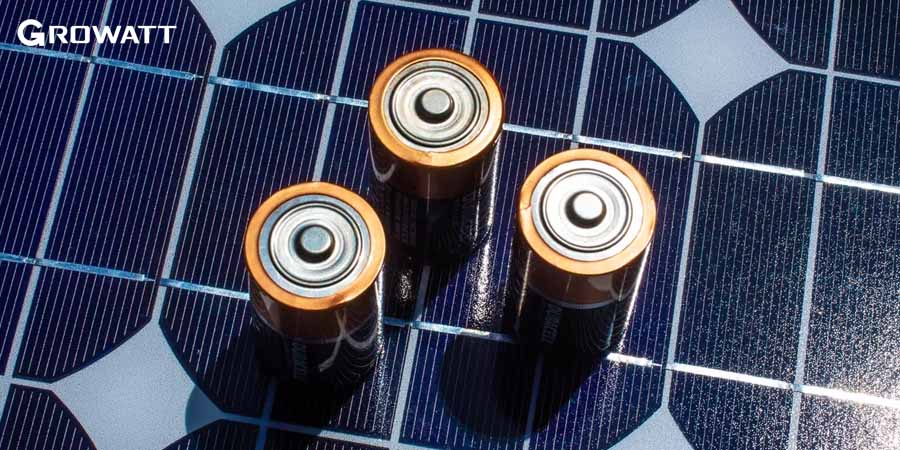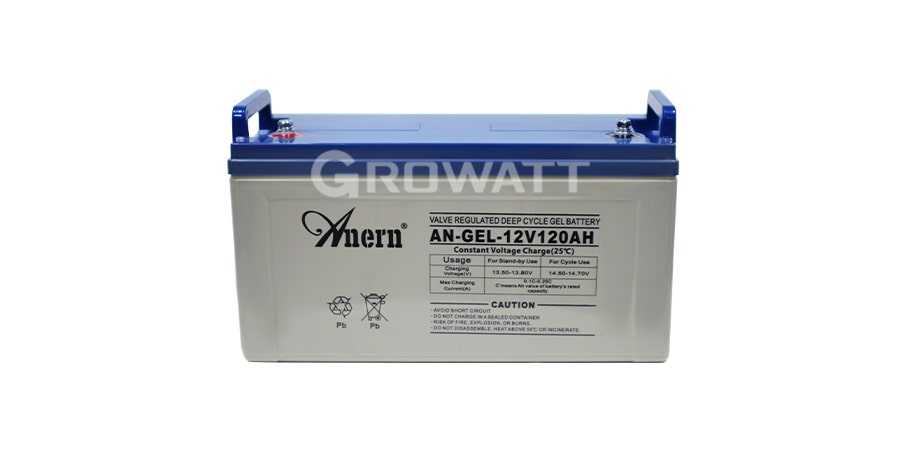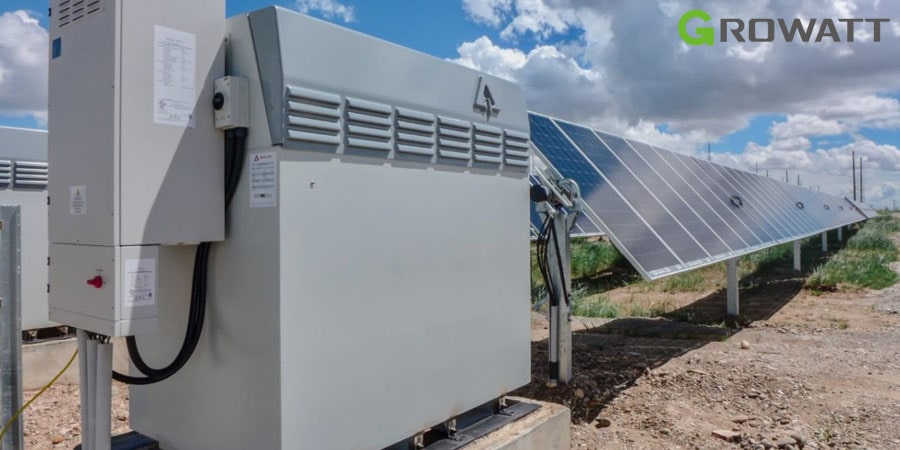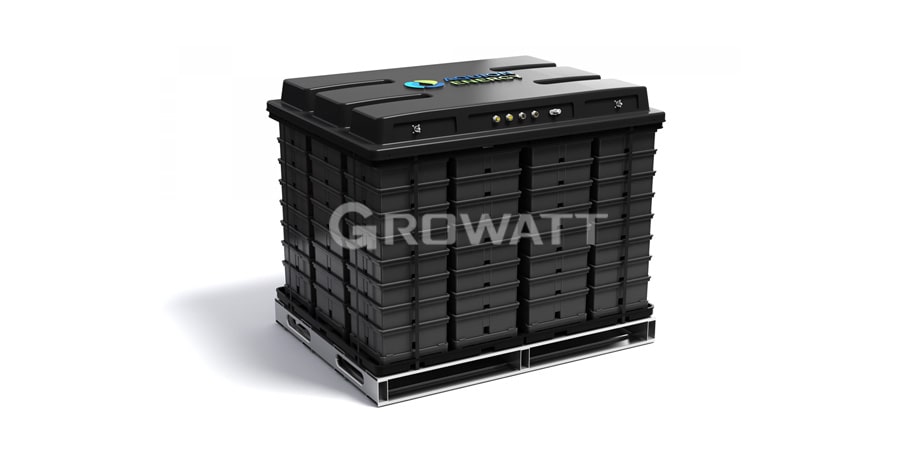Solar batteries enable you to store the excess energy that has been generated by your solar power system so you can use it later. Choosing the correct solar batteries for your solar panel system can enhance your energy savings. Here, we are aiming to help you find the best battery for the solar inverter. If you want more information about growatt on grid inverter and off-grid, contact us.
| Solar Inverter Battery Type | Cost | Lifespan | Maintenance Requirements | Efficiency | Environmental Impact |
| Lead-Acid Batteries | Low | Moderate | Regular checks, water top-ups, equalizing charge | 70-80% | Environmental risk due to lead content and acid leakage |
| Lithium-Ion Batteries | High | Long | Minimal maintenance, occasional monitoring | 90-95% | Lower environmental impact, recyclable but resource-intensive |
| Nickel-Cadmium Batteries | Moderate | Long | Regular checks, monitoring, occasional maintenance | 80-85% | Contains toxic cadmium, recyclable but environmental concerns |
| Flow Batteries | High | Long | Occasional maintenance, system checks | 70-75% | Potentially lower environmental impact, recyclable but complex recycling process |
| Saltwater Batteries | Moderate | Moderate | Minimal maintenance, occasional monitoring | 60-70% | Lower environmental impact compared to traditional chemicals |
Top 5 types of solar inverter batteries
1. Lead-Acid Batteries:
These batteries are the most common type of batteries in the market that are used in solar panel systems. Nevertheless, it’s worth mentioning that these batteries need regular maintenance, and they also happen to be sensitive to temperature variations.
- Cost:
Lead-acid batteries are generally inexpensive compared to other groups.
- Lifespan:
They generally have a lifespan of 3–6 years.
- Maintenance Requirements:
They need regular maintenance, including water level checks, cleaning terminals, and some infrequent equalization charging.
- Efficiency:
Lead-acid batteries happen to be less efficient in comparison to other types of batteries, with lower charge and discharge rates.
- Environmental Impact:
Lead-acid batteries contain toxic materials like lead, which makes them a danger to the environment if not disposed of properly.
2. Lithium-ion Batteries:
Lithium-ion batteries are becoming ever more popular because of reasons such as their high energy density or longer lifespan. It is also good to mention that they are considered to be more expensive upfront, but rest assured that they offer a higher return on investment in the long run.
- Cost:
Lithium-ion batteries are more expensive upfront but offer better long-term value because of their longer lifespan.
- Lifespan:
Their lifespan is generally 10–15 years, which is significantly higher than lead-acid batteries.
- Maintenance Requirements:
Lithium-ion batteries need a minimal amount of maintenance, as they are generally maintenance-free.
- Efficiency:
They have higher charge and discharge rates, making them more efficient compared to lead-acid batteries.
- Environmental Impact:
In the case of lithium-ion batteries, we can’t say that they are completely environmentally friendly, but they have a lower environmental impact during their operational life, and just like any other battery, they must be disposed of properly.
3. Flow Batteries (Vanadium Redox, Zinc Bromine, etc.):
Flow batteries have the power to store energy through chemical reactions happening between two liquid electrolytes that have been separated by a membrane. Yet, since they are still in the early stages of development, they happen to be rather expensive.
- Cost:
Flow batteries are, at present, more expensive than lead-acid and lithium-ion batteries.
- Lifespan:
They have a longer lifespan and can last for 15-25 years.
- Maintenance Requirements:
Flow batteries have relatively low maintenance requirements, which is similar to lithium-ion batteries.
- Efficiency:
Their efficiency is equal to lithium-ion batteries.
- Environmental Impact:
Flow batteries are more environmentally friendly than lead-acid batteries, but the amount of impact can differ depending on the specific chemistry used in them.
4. Saltwater batteries:
Saltwater batteries are another type of energy storage system we are going to talk about. They use salt water as an electrolyte. They are known for their long lifespan, low maintenance requirements, and environmental friendliness, which are attributable to the non-toxic materials used in them.
- Cost:
Higher initial cost, but potentially lower lifetime costs due to longer lifespan.
- Lifespan:
They are known to have a longer lifespan than other groups
- Maintenance Requirements:
They have pretty low maintenance requirements, which is similar to lithium-ion batteries.
- Efficiency:
Generally less efficient compared to Nickel-Cadmium batteries
- Environmental Impact:
Considered more environmentally friendly due to the use of non-toxic materials
5. Nickel-Cadmium batteries:
The last type we are going to talk about is nickel-cadmium batteries, which are rechargeable batteries generally used in solar energy systems. They are well known for their high energy density and their long cycle life, in addition to their reliability in performing in countless environmental conditions.
- Cost:
They have a lower initial cost, but they may have a higher overall lifetime cost as a result of a longer lifespan.
- Lifespan:
They are known to have a longer lifespan than other groups
- Maintenance Requirements:
They have pretty low maintenance requirements, which is similar to lithium-ion batteries.
- Efficiency:
They happen to be more efficient compared to Saltwater batteries
- Environmental Impact:
Potentially, they have a higher environmental impact due to the toxic materials used in them.
How to choose the most suitable battery for a solar energy system
There are aspects to consider when you are evaluating your choices for solar batteries. These specifications include the amount of time the battery lasts or the amount of power it provides for you. In this part, you will learn about different types of solar batteries and their characteristics so you can make informed decisions.
Contact us for more information about growatt inverter price .
The best shopping center for gravitate inverter
When it comes to solar energy systems, it is essential to choose the suitable solar inverter and battery combination so that maximum efficiency is achieved and make sure a reliable power supply exists. By understanding the various types, features, and factors to consider, you will be able to confidently select the best solar inverter and battery combination for your specific requirements.
Whether you are looking for a residential or commercial installation, a careful evaluation and examination of the parameters discussed in this article will ensure a successful and cost-effective investment in the solar energy department.
We hope that this article has given you enough information about the subject but if you have other questions about other topics such as the growatt off-grid inverter price or growatt hybrid inverter price feel free to check our other blog posts or contact us directly.





